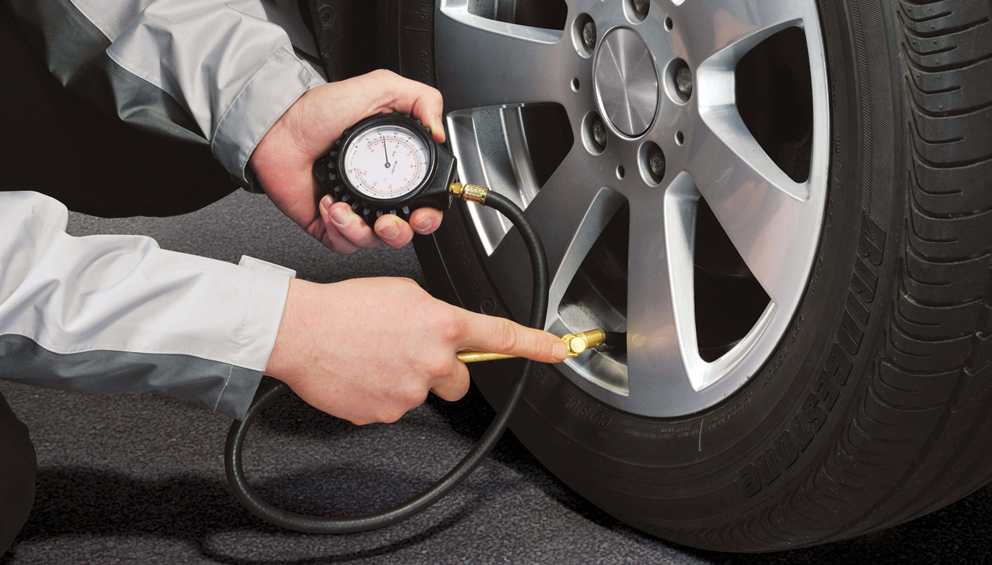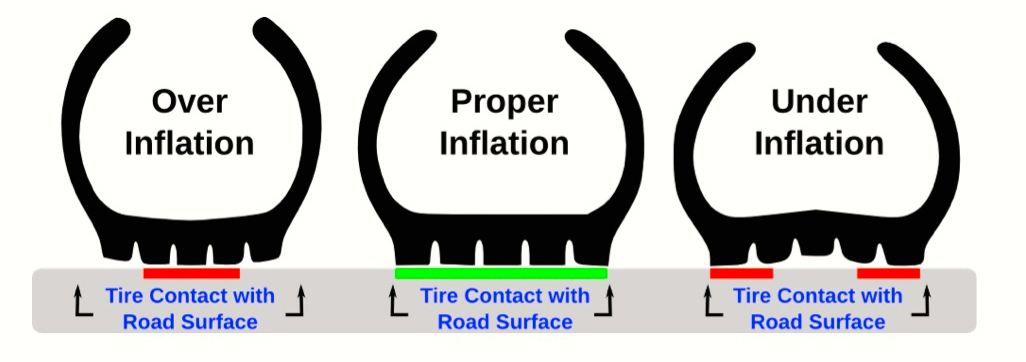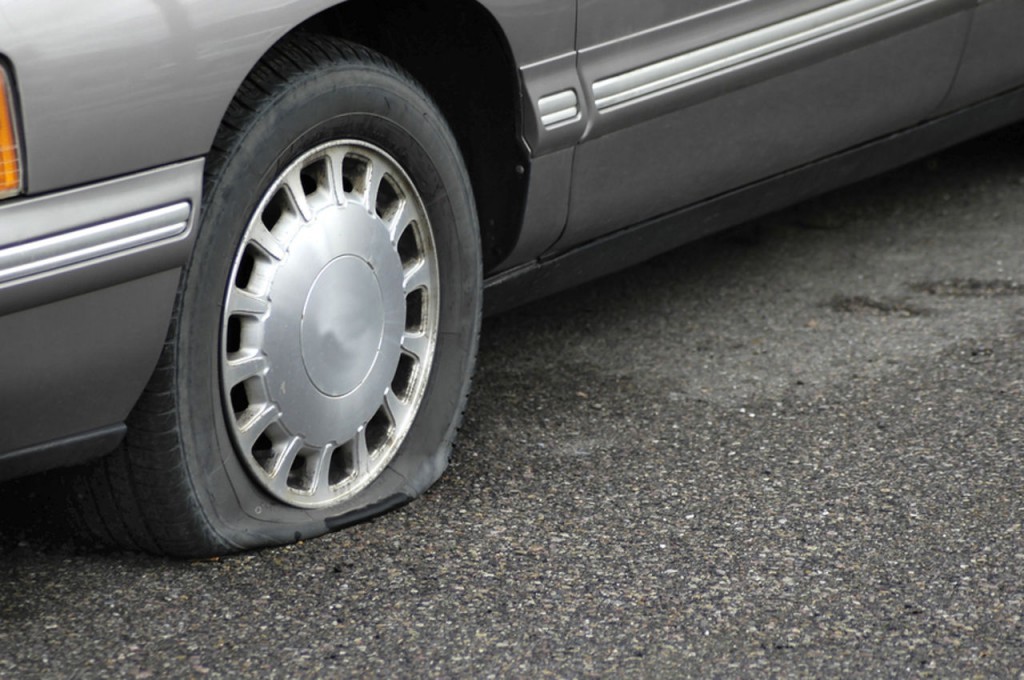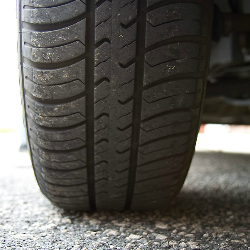Posted on 1/18/2018
Sometimes the worst thing that can happen to you is a mishap on the road. If you notice your vehicle start to shimmy and shake and there is a slight up and down motion to your car. Pull over because you have a flat tire! The last thing you want to do is drive on a flat. It can and will do a lot of damage to your vehicle. Wheels are not designed to take the weight of your car. If you drive on a flat tire, you risk adding the cost of a wheel to the cost of tire repair. Don't drive any longer than you have to, just get of traffic and park in the most level place you can find. After you have driven your vehicle safely out of the flow of traffic you should examine the affected tire. Just a tiny hole can cause a tire to lose air and go flat. The best way to find tiny holes is to use water and soap. The bubbles will be a roadmap and show you wear the hole is. I always keep a small bar of hotel soap in my glove compartment; just make sure it is sealed well, so it doesn't melt! The n ... read more
Posted on 6/16/2017

Tire InstallationHow to Properly Inflate Your Tires to Stay Safe on the Road (Part 3) NOTE: This is the second part of our series on tire inflation. Please click here for Part 1, and click here for part 2. Always make sure your tires are inflated properly. Here's how: 1. Go over at a gas station that has a compressor with an indicator.2. Position your car so you can reach to all four wheels.3. Check the pressure specifications of the wheels. Search for a label that can be found on the door, the glove compartment or trunk.4. Remove the plastic lid from the valve and put it somewhere safe so you don't lose it.5. Verify the pressure with your gauge or with the one at the gas station. Click on the valve device and clasp it tightly. If you notice a whistling sound, it ... read more
Posted on 6/15/2017

Tire InstallationHow to Properly Inflate Your Tires to Stay Safe on the Road (Part 2) NOTE: This is the second part of our series on tire inflation. Please click here for Part 1. How do you check the inflation level of your tires? There are many people who are unsure how to do this or people who think they can just look at a tire to determine if it is under or over-inflated. Estimating the air pressure level in your tire by looking at them will never give you accurate results. There is a small tool that can be purchased at any auto supply store, as well as many home improvement centers, and perhaps your local hardware store. It's called a tire pressure gauge, and you can simply place it on the nozzle of your tire and get a reading of the air pressure within your tires. Trying to gauge it by eye may result in 20% over-inflated ... read more
Posted on 6/14/2017

Tire InstallationHow to Properly Inflate Your Tires to Stay Safe on the Road (Part 1) Your vehicle's tires are obviously important- and if you've ever experienced a tire blowout while driving, you know how frightening it can be. It can throw your car around, which can be disastrous if you are not able to get it back under control. Everyone understands the importance of having tires on their vehicle, but what's odd about it is most people don't take the time to check their tires - or are not checking them frequently enough. In fact, studies show that tires are the most neglected part of a vehicle. When your tires are not properly inflated, it is not only a safety hazard, but you end up costing yourself more money since under, or over-inflated tires will reduce your vehicle's gas mileage. With the ever-increasing price of fuel, this can result in a large amount of wasted money. The actual life of your tire is also reduced with un ... read more
Posted on 5/23/2017

It's way too easy to just forget about your tires and take them for granted...right up to the point where something goes wrong. It's important to keep up on their condition, though, and know what to look for! Here's a quick rundown of the best ways to inspect your tires: Regularly get a close look at the sidewalls and check for bulges, cracking (some cracking due to age is normal), gouges and scrapes. The sidewalls are pretty tough and can withstand curb scrapes, but use your own judgment as to what constitutes more serious damage. You'll know. Get a close look at the tread surface and run your hand over it to feel for irregularities. A “feathered” or “sawtooth” feel to the tread face can be an indicator of suspension problems, as is a “cupped” profile. Look at the entire tread face and check for uneven wear on the inside or outside edge – this is a sure sign of alignment problems. If your tires are beginning to wear significantly, be wary of ... read more